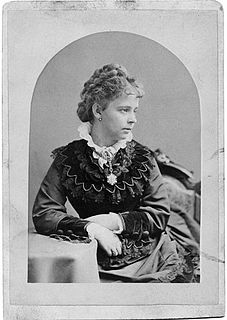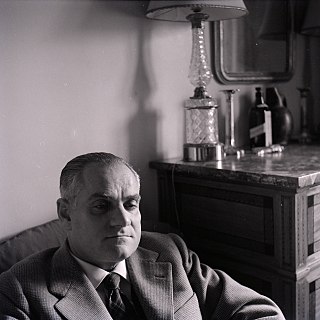A Quote by Ilya Ehrenburg
It seems to me that the novel is very much alive as a form. Without any question, every epoch has its own forms, and the novel nowadays cannot resemble that of the nineteenth century. In this domain all experiments are justified, and it is better to write something new clumsily than to repeat the old brilliantly. In the nineteenth century, novels dealt with the fate of a person or of a family; this was linked to life in that period. In our time the destinies of people are interwoven. Whether man recognizes it or not, his fate is much more linked to that of many other people than it used to be.
Quote Topics
Alive
Any
Better
Cannot
Century
Dealt
Domain
Epoch
Every
Experiments
Family
Fate
Form
Forms
His
Interwoven
Justified
Life
Linked
Man
Many
Me
More
Much
New
Nineteenth Century
Novel
Novels
Nowadays
Old
Other
Our
Our Time
Own
People
Period
Person
Question
Repeat
Resemble
Seems
Something
Something New
Than
Time
Used
Used To Be
Very
Whether
Without
Write
Related Quotes
It's strange that in an age when we pride ourselves on our independence of thought we meekly submit without further question to the declaration of a clearly unbalanced nineteenth century philosopher that God is dead! That's cheeky, of course - and one rarely comes away from reading Nietzsche without learning something new and significant. He's certainly FAR more unsettling for faith than any contemporary atheist I know of.
Most of what I read is for reviewing purposes or related to something I want to write about. It's slightly utilitarian. I definitely miss that sense of being a disinterested reader who's reading purely for the pleasure of imagining his way into emotional situations and vividly realized scenes in nineteenth-century France or late nineteenth-century Russia.
Given that the nineteenth century was the century of Socialism, of Liberalism, and of Democracy, it does not necessarily follow that the twentieth century must also be a century of Socialism, Liberalism and Democracy: political doctrines pass, but humanity remains, and it may rather be expected that this will be a century of authority ... a century of Fascism. For if the nineteenth century was a century of individualism it may be expected that this will be the century of collectivism and hence the century of the State.
THE NINETEENTH CENTURY SPREAD OF CHRISTIANITY WAS DUE PRIMARILY TO A NEW BURST OF RELIGIOUS LIFE EMANATING FROM THE CHRISTIAN IMPULSE. . . . NEVER IN ANY CORRESPONDING LENGTH OF TIME HAD THE CHRISTIAN IMPULSE GIVEN RISE TO SO MANY NEW MOVEMENTS. NEVER HAD IT HAD QUITE SO GREAT AN EFFECT UPON WESTERN EUROPEAN PEOPLES. IT WAS FROM THIS ABOUNDING VIGOR THAT THERE ISSUED THE MISSIONARY ENTERPRISE WHICH DURING THE NINETEENTH CENTURY SO AUGMENTED THE NUMERICAL STRENGTH AND THE INFLUENCE OF CHRISTIANITY.
In the end, of course, all novelists will be judged by their novels, but let's not forget that we will also need new ways of assessing the latter. There are people who will continue to write nineteenth-century novels in the early twenty-first, and even win major prizes for them, but that's not very interesting, intellectually or emotionally.
The Anglo-American tradition is much more linear than the European tradition. If you think about writers like Borges, Calvino, Perec or Marquez, they're not bound in the same sort of way. They don't come out of the classic 19th-century novel, which is where all the problems start. 19th-century novels are fabulous and we should all read them, but we shouldn't write them.
Did the nineteenth-century novelists create more generously than we do now? In a general reading of contemporary work, do you see a lot of new and different characters, or is it the same character who is a stand-in for the writer? And it's interesting enough, but it's a weakness I think. We are much more self-revealing and less able to produce new people over and over again.





































